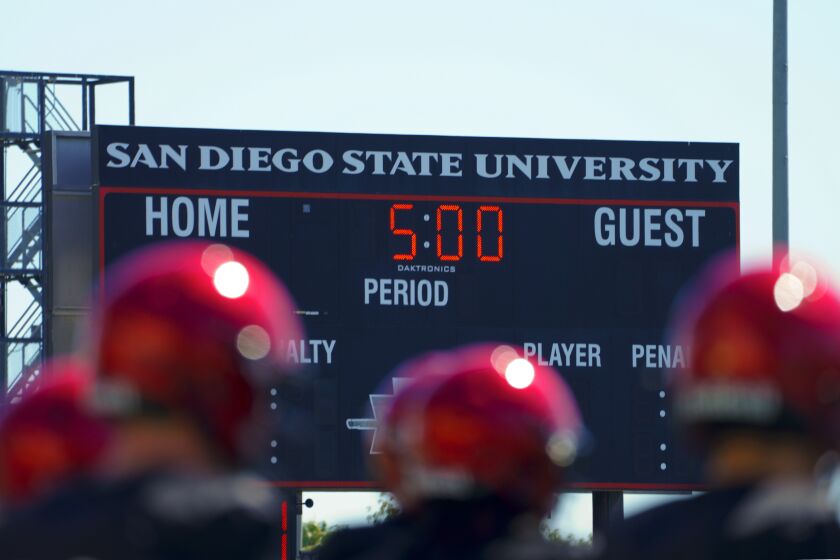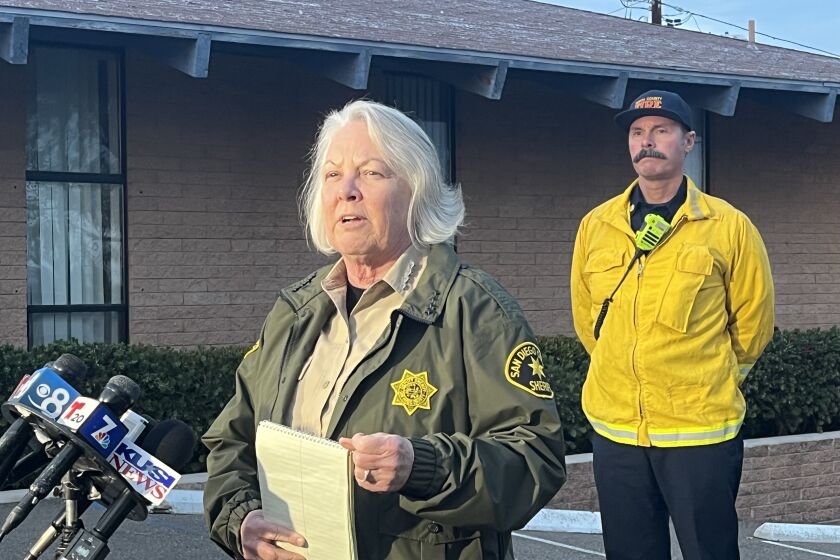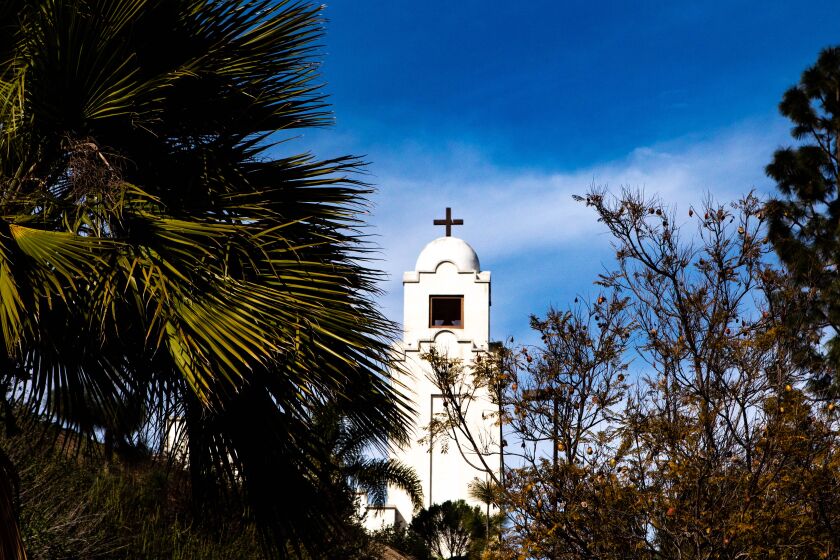Trial begins for former news anchor claiming pay inequity, gender discrimination at KUSI
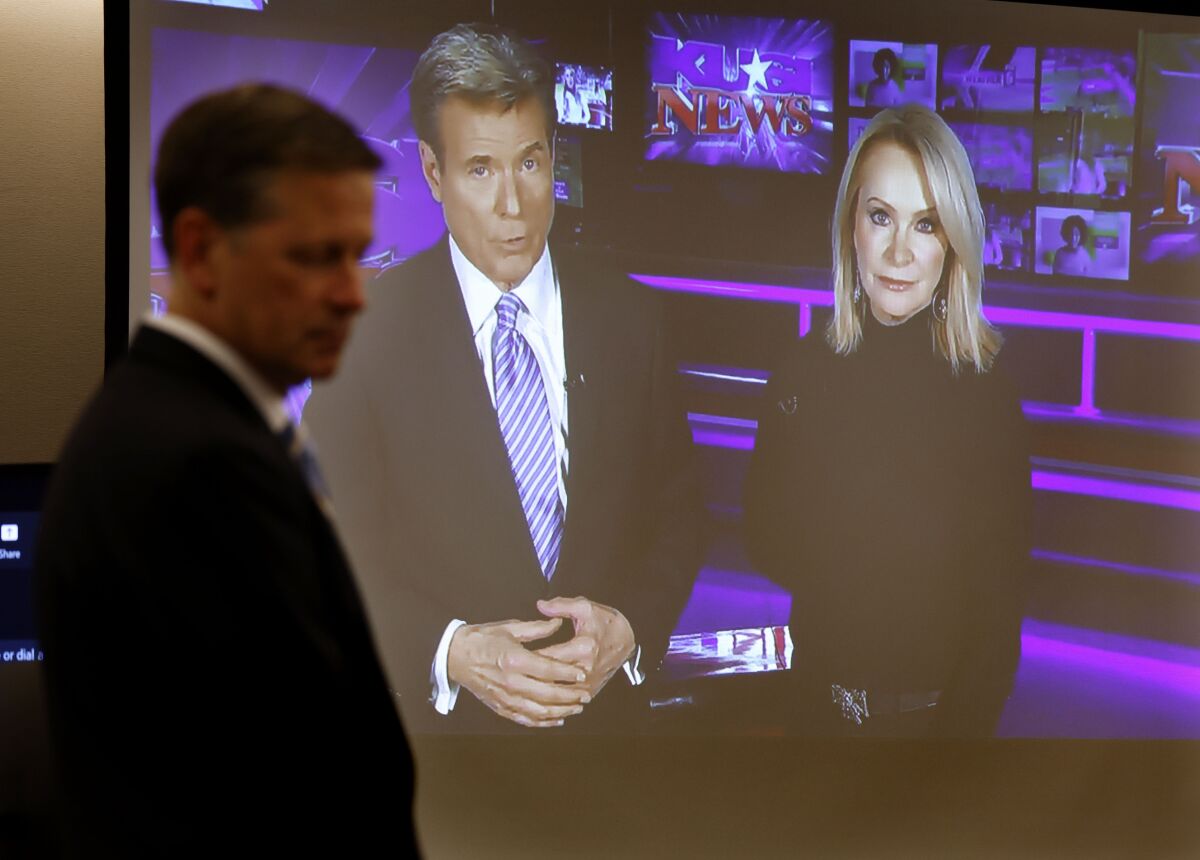
Sandra Maas accusing San Diego television station KUSI of paying her thousands less than male co-anchor for same job
An attorney for Sandra Maas told a jury Tuesday that the longtime news anchor did the same job as her male co-anchor for years, sitting on the KUSI television news desk, leading the flagship newscast together.
But Allen Denton made at least $60,000 more than Maas did annually, according to numbers the attorney presented in court. The attorney said that when Maas asked for equal compensation, her contract ultimately was not renewed.
“There are two individuals. One man, and one woman, sitting side by side at the same newsdesk, reading from the same teleprompter, anchoring the same newscast, but paid significantly different by KUSI,” Maas’ attorney Pam Vallero said in San Diego Superior Court. “That is why we are here.”
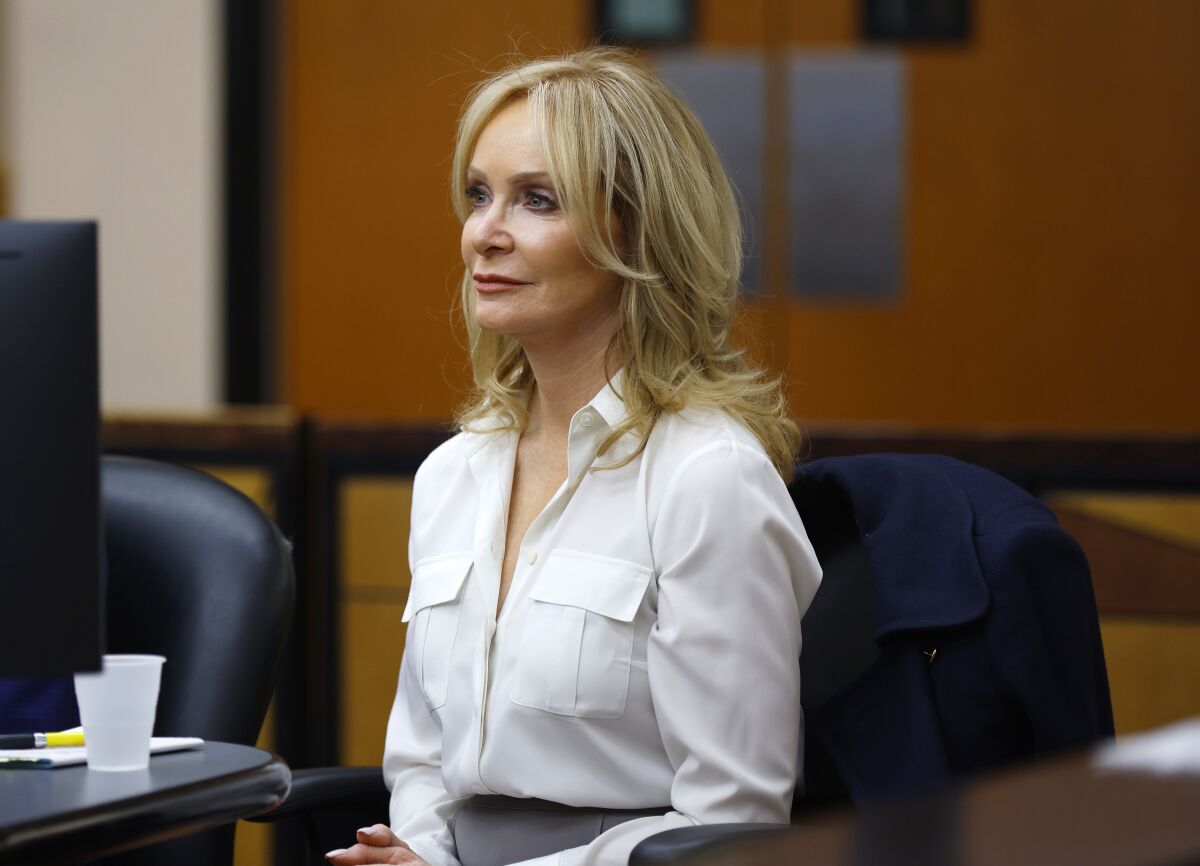
KUSI’s attorney Ken Fitzgerald told the jury there were “bonafide reasons” for the difference in pay. He said Maas had less experience, worked fewer hours and was “not as dedicated to the news” as Denton.
“She was paid fairly for her work in light of her experience, in light of her work ethic, attitude and overall value,” Fitzgerald said.
On Tuesday, the jury heard opening statements in the lawsuit Maas brought against McKinnon Broadcasting Co. which owns KUSI. Her lawsuit alleges the company violated the state’s Equal Pay Act, age and gender discrimination law, and whistleblower retaliation code.
Vallero told the jury they will ask for compensation for the wage differential between the two anchors, as well as lost past and future earnings — all of which could tally up to about $4.7 million. She said they will also ask the panel to “punish KUSI” for willfully disregarding Maas’ right to equal pay.
Judge Ronald Frazier’s courtroom in the Hall of Justice in downtown San Diego was packed during opening statements, and the audience included local reporters and members of the public.
Maas, who worked at CBS 8 in San Diego in the 1990s, started at KUSI as a morning anchor in 2004. Denton, who had been in the Bay Area, joined KUSI in 2010.
Vallero said that when Maas and Denton starting anchoring the evening newscasts together in 2010, Maas made $120,000 a year. Denton made $200,000.
In 2018, Denton made $240,000 annually. Maas was at $180,000.
When Maas learned approximately what Denton was making, she emailed the station management, asking that her salary be on par with her co-anchor. Vallero said what followed was a “tense” meeting — she wanted a raise, they wanted to know who her source was.
When Denton retired in early 2019, he was making $245,000, Vallero said. Maas was making $180,000. Later that year, she was told her contract would not be renewed.
Vallero said the evidence at trial will show were two reasons Maas’ contract was not renewed. First, the station said it wanted to bring in a “new generation.” Second was the “unspoken reason,” which the attorney said was that Maas had “blown the whistle on the pay inequity.”
Fitzgerald said the decision not to renew Maas contract came with the break up of the station’s longtime evening news team, including consumer reporter Michael Turko, sports director Paul Rudy and weatherman John Coleman. (Coleman retired in 2014, Turko retired in 2018, Denton retired in 2019.)
He said Maas was “not discriminated or retaliated against.” Rather, KUSI was moving toward a fresh news format, with more banter and conversation, and the news director decided “she was not right for the role.” It was a “casting decision based on her style.”
Fitzgerald said Maas’ on-air performance was excellent, but that off camera she was “disengaged, difficult, and disinterested.”
Maas’ attorney said there was no evidence of any such feedback or complaints.
Vallero claimed the two anchors had comparable experience. KUSI’s attorney said they did not.
Maas’ attorney said Maas had worked in broadcast television for 33 years, compared to Denton’s 37 years on TV. KUSI’s attorney said Denton had 48 years of experience, counting 11 years in radio before jumping to TV.
Fitzgerald said Maas had spent most of her career in the San Diego media market, ranked 29th in the nation, based on size. Fitzgerald said Denton’s experience including eight years as an evening anchor in the San Francisco Bay Area, the nation’s sixth- largest media market — where he reportedly made $690,000 a year, according to attorneys.
The civil trial could extend into March. Jurors will hear from several witnesses, including station owner Michael McKinnon and his namesake son, the general manager and president of KUSI.
It’s not clear if Denton will testify. Maas’ attorney Josh Gruenberg told the judge that Denton “has ghosted us” and could not be reached — and his phone was disconnected.
The latest news, as soon as it breaks.
Get our email alerts straight to your inbox.
You may occasionally receive promotional content from the San Diego Union-Tribune.


